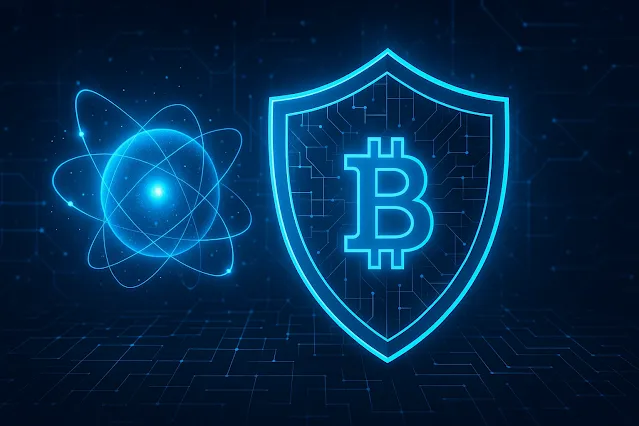Quantum-Resistant Crypto: QShield Network Debuts to Safeguard Blockchain from Future Threats
As quantum computing inches closer to practical reality, the crypto world is facing an unprecedented challenge: quantum attacks that could break today’s encryption standards. Enter QShield Network, a pioneering blockchain protocol launched today that claims to offer quantum-resistant security — ensuring the longevity and safety of decentralized ecosystems.
What Is QShield Network?
QShield Network is designed as a post-quantum blockchain utilizing lattice-based cryptography and multivariate quadratic algorithms — two of the most promising defenses against quantum decryption. Built by a team of cryptographers from MIT and ETH Zurich, QShield aims to become the first widely adopted quantum-secure blockchain.
Key Features:
-
Post-Quantum Encryption: Protects wallets, transactions, and smart contracts from Shor’s algorithm and quantum attacks.
-
Backward Compatibility: Offers tools to migrate existing crypto assets like Bitcoin and Ethereum to quantum-secure wrappers.
-
Adaptive Consensus: Uses a hybrid proof-of-stake model that can be updated as quantum capabilities evolve.
Why Does This Matter?
The rise of quantum computers poses a massive threat to current cryptographic systems, including:
-
Wallet Vulnerability: Private keys could be cracked in seconds.
-
Network Disruption: Quantum attackers could manipulate blockchain consensus.
-
Smart Contract Exploits: Quantum systems might break into locked contracts and DAOs.
QShield steps in as a proactive solution, not a reactive patch — aiming to future-proof decentralized finance, NFTs, and tokenized assets.
Challenges and Outlook
While promising, QShield faces several challenges:
-
Computational Load: Quantum-safe algorithms are notoriously slow and resource-intensive.
-
Adoption Hurdles: Migrating major ecosystems to QShield’s standard will require industry-wide coordination.
-
Public Trust: Convincing users to switch to a “problem that doesn’t exist yet” remains a marketing challenge.
Yet, early momentum is promising. Major exchanges like Kraken and Gemini are reportedly in talks to integrate QShield tokens, and several DeFi protocols are exploring hybrid deployments.
Expert Voices
Dr. Tobias Klein, a quantum cryptography expert, noted:
“We need to act now, not when quantum computers are already breaking things. QShield is one of the few projects addressing this head-on.”
Meanwhile, blockchain investor Sofia Marin predicted:
“QShield could become the insurance policy of the crypto world — a layer every major blockchain adopts over time.”
What’s Next?
QShield plans to launch a testnet migration toolkit by June 2025, followed by partnerships with NFT platforms and cross-chain bridges. For crypto holders, it may soon become crucial to assess whether their assets are quantum-hardened — or risk exposure to a technological wave few are prepared for.
Stay tuned as we track how this crucial innovation unfolds in the months ahead.







